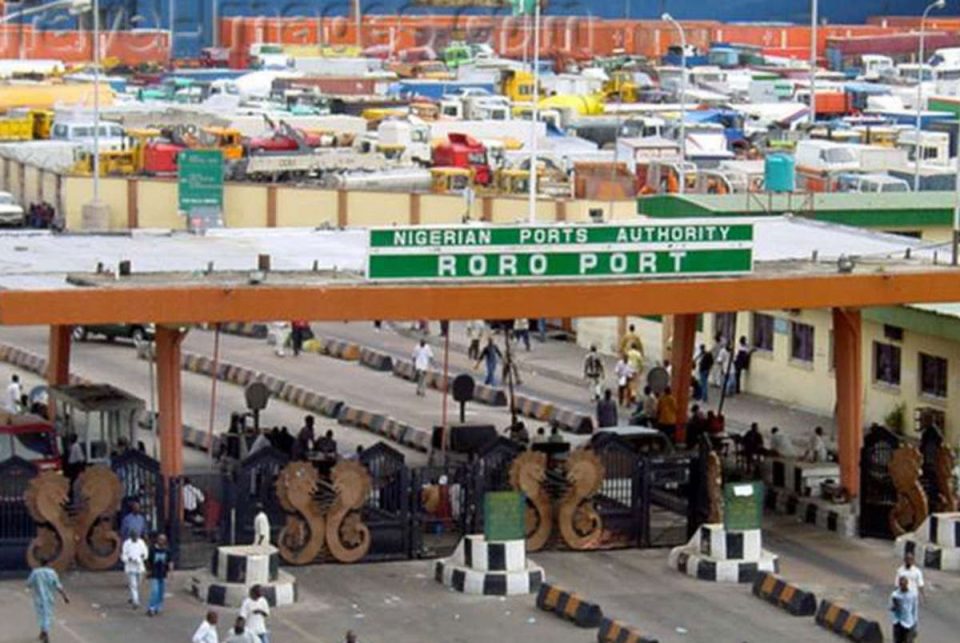Cargoes worth billions of naira are trapped at the Apapa and Tin Can ports as truckers have withdrawn services following continuous extortions and harassment they face at the ports and access roads by government agencies, security operatives and non-state actors.
According to the truckers, their ordeals were yet to be addressed by the government despite several calls for intervention.
The truckers, under the aegis of the Council of Maritime Transport Unions and Associations (COMTUA), had made known their intention to withdraw their services at the ports from today, October 4 to Thursday, October 6, in a letter to the Inspector General of Police, Council for the Regulation of Freight Forwarding in Nigeria (CRFFN), Nigerian Shippers’ Council (NSC), Nigerian Ports Authority (NPA), AIG Maritime Police Command, Commissioner of Police, Lagos Command and the Lagos Ministry of Transportation, a copy of which was made available to The Guardian yesterday.
National President of COMTUA, Mr. Adeyinka Aroyewun, said there is no going back on the withdrawal of services until the issues are addressed, noting that the truckers will protest within and around the ports corridors and the office of the Governor of Lagos State.
He said this became necessary as a result of the failure of the state and Federal Government to address the issues raised in its previous letters of complaints sent to relevant agencies, which include, the preferences given to trucks accompanied by military personnel in the return of empty containers to the port and non-admission of some trucks into pre-gates, thereby, giving such trucks advantage over their members.
Other issues highlighted were: High cost of an electronic call-up, illegal deduction from truckers’ wallets in the name of demurrage by Trust Transit Park (TTP), expansion of garages for favouritism by the management of NPA and TTP, and harassment of truckers by law enforcement agencies.
The COMTUA boss said NPA’s non-challant attitude to the plight of truckers, regarding the failure of TTP to deliver on their deliverables, can no longer be tolerated, hence, the action taken by truckers.
Aroyewun said the strike action was to press further truckers’ demand for a better working environment within the port area, which include an immediate abolition of the electronic truck call-up system/TTP regime and immediate disbandment of all checkpoints on the port roads, which have turned to an avenue for extortion.
The COMTUA boss said truckers have made several efforts to reach the regulators, but all proved abortive, while also informing freight forwarders to brace up for the consequences of their actions.
MEANWHILE, Nigerian Permanent Representative to International Seabed Authority (ISA), who also doubles as Nigerian High Commissioner to Jamaica, Mrs Maureen Tamuno, yesterday, said Nigeria will engage other African countries on Africa Deep-seabed Resources (ADSR) to take advantage of the blue economy for sustainable development of the country.
Tamuno noted that the main objectives are to strengthen the capacity to promote the effective participation of developing states in deep sea exploration and to ensure that the benefits of marine science and technology are distributed equitably.
The commissioner, who disclosed this in Abuja, at a press briefing on the imperative of supporting Africa’s blue economy, said Nigeria would engage other countries in a workshop to be organised from October 5 to 7.
She said the workshop aimed at the sustainable development of deep seabed resources located on Africa’s continental shelves and in the international seabed area and how it could be a key driver for the development of Africa’s blue economy.
She explained that the event is organised by the International Seabed Authority in collaboration with the National Boundary Commission (NBC), Federal Ministry of Transportation, Nigerian Maritime Administration and Safety Agency (NIMASA), and other relevant MDAs, with the aim to support Africa’s blue economy strategy.
Earlier in his address, the Secretary General of the International Seabed Authority, Mr Michael Lodge, said blue economy could contribute up to $1.5 trillion to the global economy if effectively and sustainably managed.
He said: “This is a huge opportunity for Africa and each African state. The oceans and seas surrounding the African continent include a wealth of natural living and non-living marine resources. This inspired a growing interest in the sustainable development of the African blue economy.
“Recent climate events around the world act as a pressing reminder that the world has no choice but to accelerate its transition toward a low-carbon economy. Examples of this include: drought and risks of famine in East Africa, floods in Pakistan and wildfires in Europe during the summer of 2022.”




